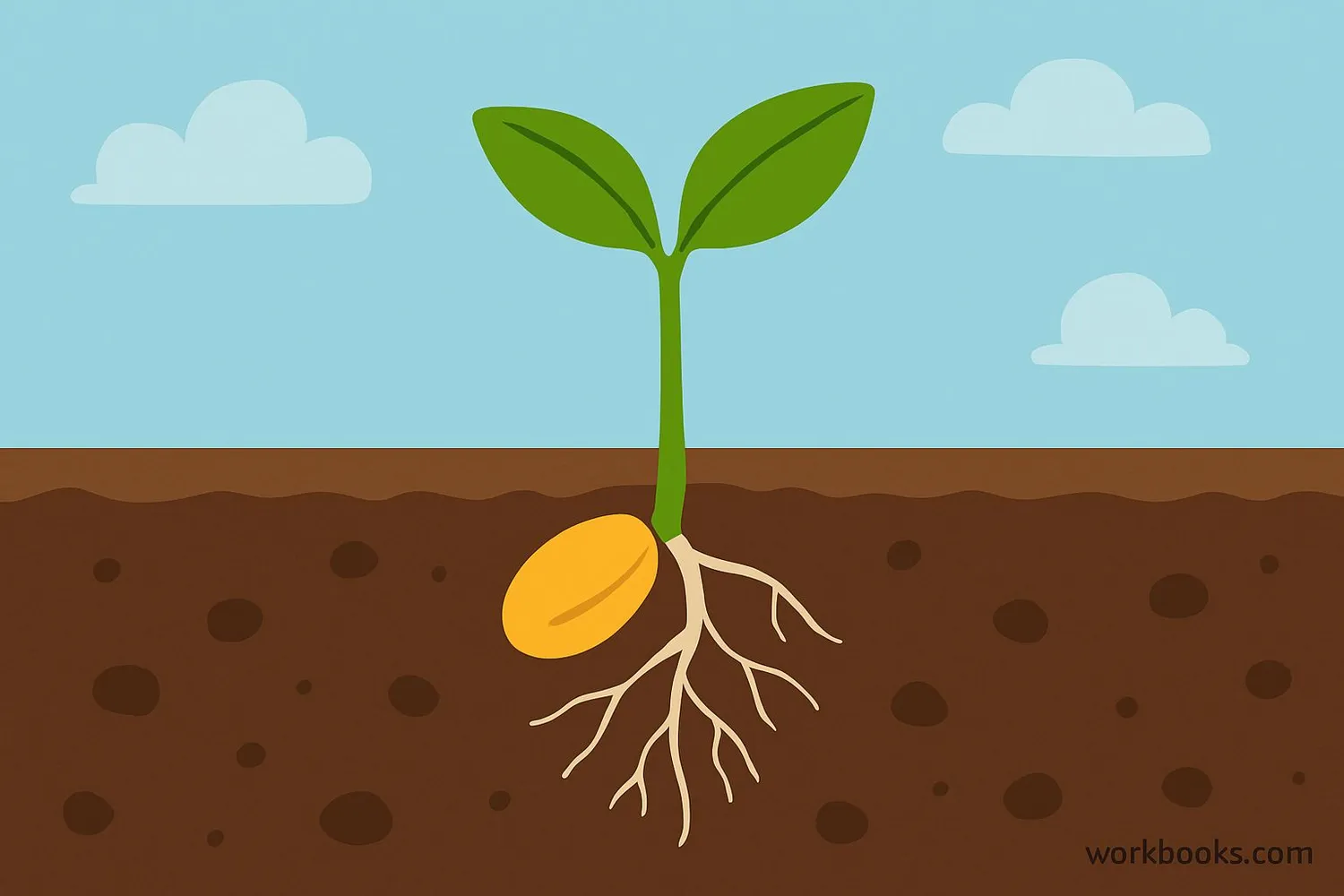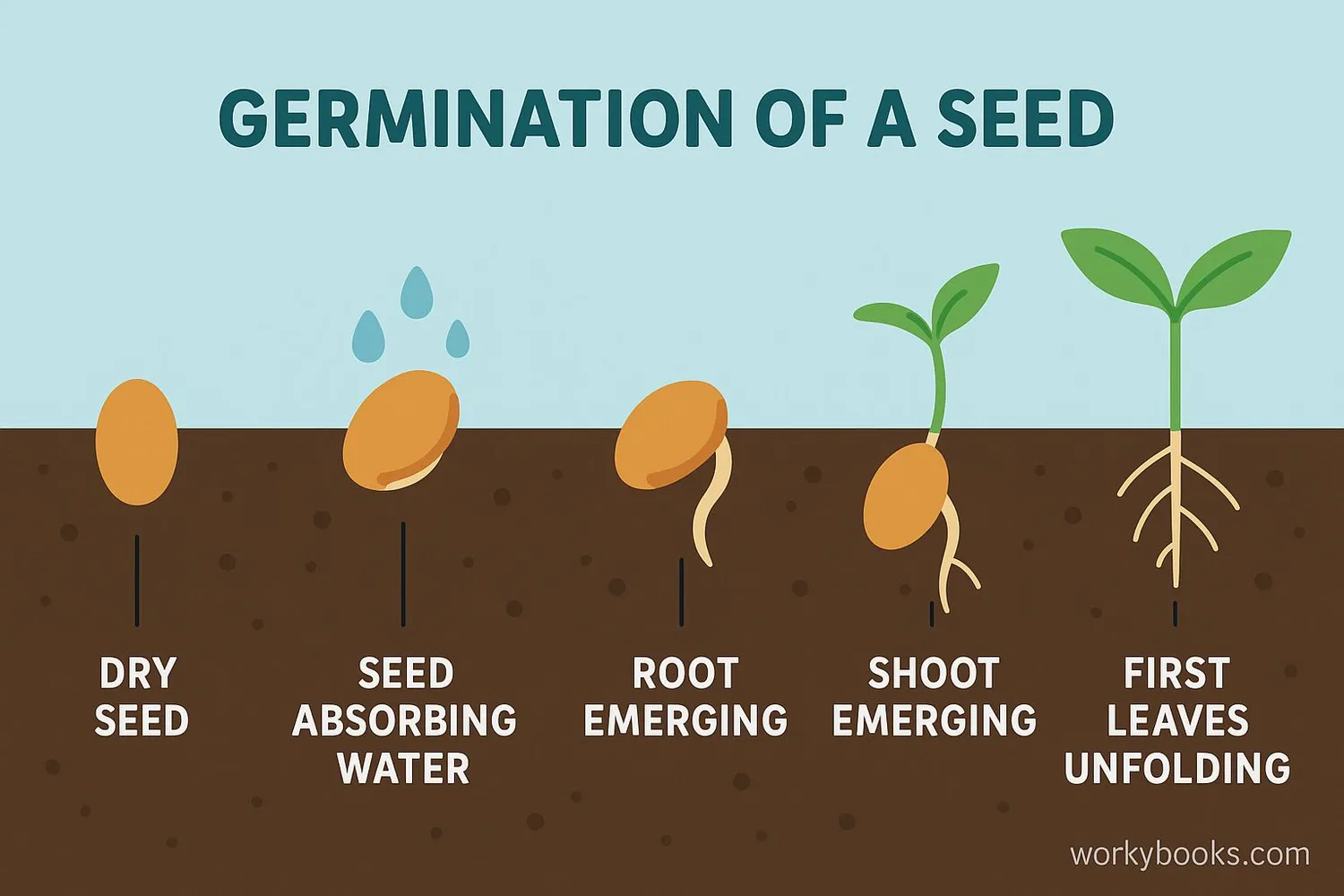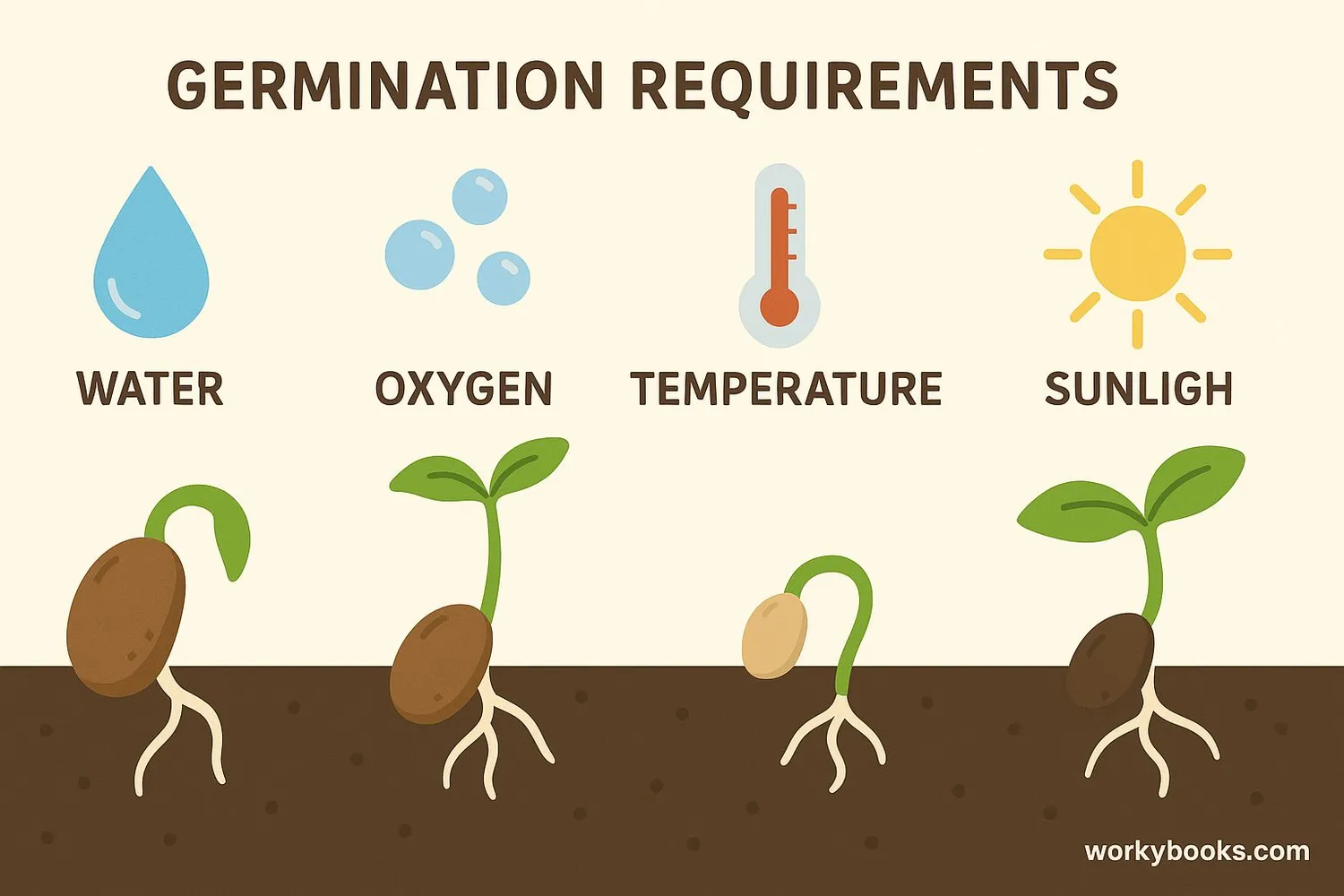Germinate - Definition, Examples, Quiz, FAQ, Trivia
Learn how seeds wake up and grow into plants
What is Germination?

Germination is the process where a seed wakes up from its sleep and begins to grow into a new plant. It's like nature's amazing magic trick - a tiny, dry seed transforms into a living plant!
When conditions are just right, the seed absorbs water, swells up, and breaks open. Then the baby plant (called an embryo) inside starts to grow roots downward and a shoot upward. This is the start of a new plant's life!
Did You Know?
Some seeds can stay dormant (asleep) for years before they find the right conditions to germinate! The oldest known seed to germinate was a 2,000-year-old date palm seed found in Israel.
The Germination Process

Germination happens in several important stages. Here's how a seed grows into a plant:
Water Absorption
The seed absorbs water and swells up, softening the seed coat
Activation
Enzymes activate and begin converting stored food into energy
Root Emerges
The radicle (baby root) pushes out first to anchor the plant
Shoot Emerges
The plumule (baby shoot) grows upward toward light
Leaves Open
First true leaves unfold and begin photosynthesis
The time it takes for germination varies by plant type. Some seeds sprout in just 2-3 days (like beans), while others may take weeks or even months. The new plant is called a seedling once it has its first true leaves.
Germination Requirements

Seeds need four important things to germinate successfully:
Water
Seeds need water to activate enzymes and soften the seed coat
Oxygen
Required for respiration to provide energy for growth
Right Temperature
Each plant species has its ideal temperature range
Light (Sometimes)
Some seeds need light, others need darkness to germinate
Different plants have different needs. For example:
• Lettuce seeds need light to germinate
• Morning glory seeds need their hard coats scratched (scarification)
• Some seeds need to go through cold winter first (stratification)
• Desert plants often need very specific rainfall amounts
Try This!
You can watch germination happen by placing bean seeds between damp paper towels in a clear plastic bag. Tape it to a window and watch daily changes!
Germination Quiz
Test your knowledge about seed germination with these questions:
Frequently Asked Questions
Here are answers to common questions about seed germination:
Seed Germination Trivia
Discover some amazing facts about seeds and germination:
Record Holders
The fastest germinating seed is the radish, which can sprout in just 24-48 hours! At the other extreme, some lotus seeds found in a dry lakebed germinated after being dormant for over 1,200 years!
Space Seeds
Seeds have been germinated in space! Astronauts grew zinnias on the International Space Station to study how plants grow without gravity. The flowers helped scientists learn about future space farming.
Giant Potential
From tiny seeds grow mighty trees! A giant sequoia seed is only 4-5 mm long, but can grow into a tree over 300 feet tall. That's like a baby growing to be taller than the Statue of Liberty!
Fire Germinators
Some plants like the lodgepole pine need fire to germinate! Their cones are sealed with resin that only melts in fire, releasing seeds onto the nutrient-rich ash bed left after a forest fire.





